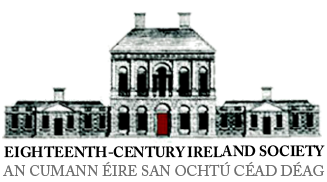Type: Article
Morley, Vincent. ‘Tá an cruatan ar Sheoirse’ folklore or politics?’, Eighteenth-century Ireland/Iris an dá chultúr, Vol. 13 (1998), pp 112-120.
This article begins by referring to what seem to be two differing positions held by S. J. Connolly of the significance of the song ‘Tá an cruatan ar Sheoirse’ written by Eoghan Rua Ó Súilleabháin during the American War of Independence. In Religion, Law and Power: The Making of Protestant Ireland 1660-1760 (Oxford, 1992), Connolly had described the song as far removed from ‘informed engagement with contemporary diplomacy and military strategy’ whereas in a recent article, Connolly had cited the song in support of ‘the startling assertion’ that the central premise of Irish jacobitism was the ‘continued incorporation’ of Ireland in the British state. Morley undertakes a detailed analysis of the poem, its contexts and its commentators. He asserts that ‘Tá an cruatan ar Sheoirse’ was composed for a specific audience : the Irish-speaking Catholic population of Munster whose interests in war were in Europe. For the first time since 1763, Britain was engaged in an international war which had the potential to overturn the Revolution settlement. Connolly had criticized Ó Súilleabháin’s song for its lack of American revolutionary references and its failure to understand ‘contemporary diplomacy and military strategy’. But Morley challenges Connolly’s assumptions about Ó Súilleabháin and about levels of English literacy and political comprehension amongst the native Irish, and discusses factors that may have contributed to Connolly’s misreading of the text. In general, Morley believes that ‘the song was written by someone with a good understanding of contemporary diplomacy and military strategy, and that the sentiments expressed in the song are incompatible with continued Irish dependence on Great Britain’ and that Professor Connolly’s reading of the poem is ‘egregiously wrong’.
